As we enter 2025, the U.S. housing market is set to present both challenges and opportunities for homeowners, renters, and investors. With rising affordability concerns, shifting rental demands, and the potential impact of policy changes following Donald Trump’s recent presidential victory, understanding market dynamics is more critical than ever. To help you stay ahead of the curve, we’re breaking down key real estate trends and how Trump’s presidency may reshape the housing landscape in 2025.
1. Housing Affordability
Housing affordability remains one of the most pressing issues in today’s real estate landscape. With a nationwide inventory shortage of 4.4M units, housing costs continue to climb, putting tremendous pressure on both prospective buyers and renters. Housing prices have surged in recent years, and many buyers are finding themselves priced out of once-accessible neighborhoods. Renters are also feeling the squeeze. Nearly 54% of renters are now classified as “cost-burdened,” meaning they’re spending over 30% of their income on rent and hidden fees, according to a study conducted by the National Association of Realtors.
Amid this affordability crisis, one potential silver lining is the expected gradual decline in mortgage rates throughout 2025, as economic policies aim to ease inflation and stimulate housing activity. For first-time buyers, a drop in mortgage rates could provide a more accessible entry point into homeownership, helping offset the rising costs.
2. The Multifamily Shift
High home prices have led many people to seek out multifamily rentals, which are seeing sustained demand and expansion. In fact, rents have increased by 45% over the last 15 years, and the multifamily market is evolving to meet the needs of this long-term tenant base.
Long story short: today’s renters are demanding more from their apartments. They’re no longer satisfied with a place that feels like they’re couch surfing; they want access to amenities that enhance quality of life. These might include fitness centers, coworking spaces, pet-friendly facilities, and family-oriented areas like playgrounds or schools. These preferences align with the work-from-home and hybrid work culture, where renters desire flexible and well-equipped spaces to accommodate both personal and professional needs.
3. Regulatory Policy Shifts
With Donald Trump’s recent presidential election victory, the housing market could experience notable policy shifts that impact everything from construction to immigration. Trump’s emphasis on reducing regulations in housing aims to cut construction costs, potentially improving affordability. However, reduced immigration could limit the labor pool, particularly in the construction sector, which might slow the pace of new housing development and keep inventory tight.
In this context, corporate housing offers a valuable solution for property owners seeking consistent demand without being directly affected by new construction timelines. As labor challenges and regulatory changes create uncertainty in new builds, homeowners offering corporate rentals can capitalize on the continued demand for existing, well-maintained properties. By positioning their homes as high-quality, readily available corporate rentals, owners can benefit from strong occupancy rates, even as construction timelines lengthen and costs fluctuate.
4. The Million Dollar Question: Is real estate still a stable investment in 2025?
Despite market fluctuations, real estate remains a highly attractive long-term investment for both individual and institutional investors. A recent report from Forbes highlights that due to sustained demand, strong homeowner equity, and a lack of risky lending practices, the likelihood of a major housing crash remains low. This stability, combined with high demand for rentals, makes real estate particularly appealing for those seeking a solid investment with consistent returns.
Corporate housing adds another layer of stability for real estate investors. Unlike short-term vacation rentals, which can see fluctuations in occupancy depending on travel seasons, corporate housing caters to business travelers, relocating professionals, and remote workers who often require mid- to long-term stays. This consistency translates to more predictable income streams for homeowners. Additionally, corporate tenants are typically backed by companies that prioritize housing quality, meaning properties are well-cared for, allowing owners to protect their investments while generating reliable returns.
Whether you’re looking to buy, rent, or invest, understanding these trends will be crucial for navigating the market. As always, consulting with trusted real estate professionals can provide valuable insights and guidance, helping you make the most of these shifts in 2025.

